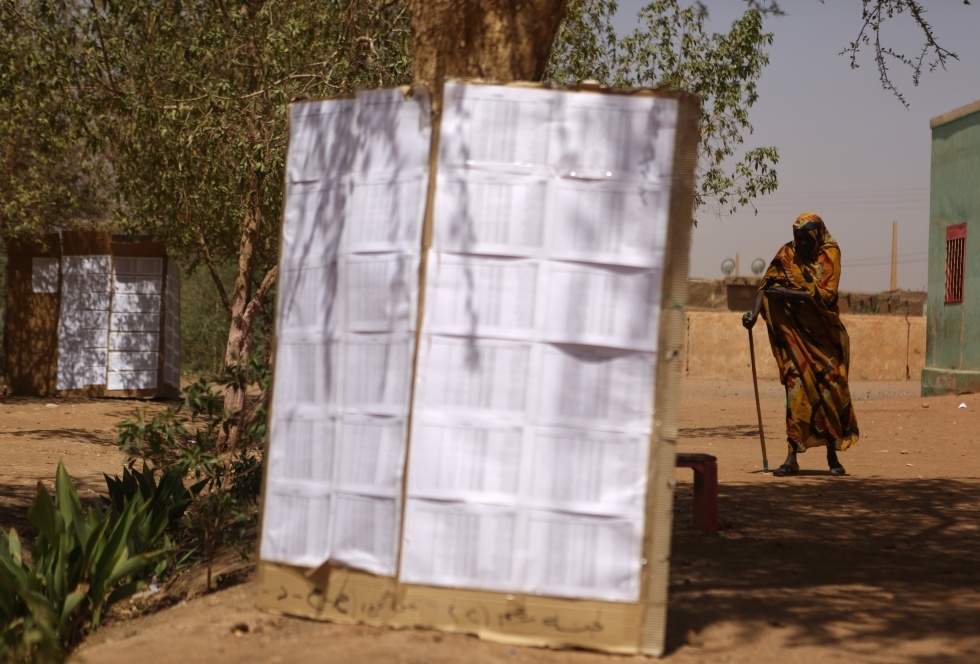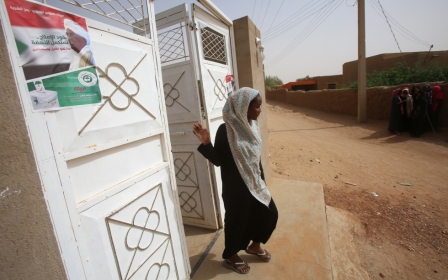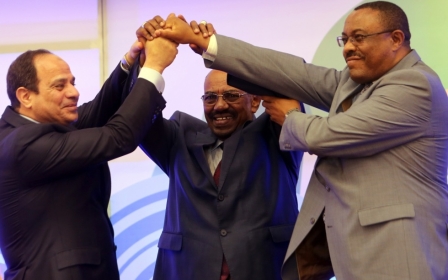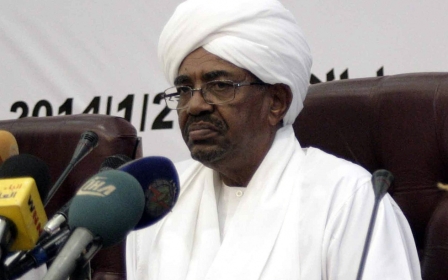Leaked report casts doubt on African Union monitoring of Sudan elections

Sudan will extend voting an extra day on Thursday, the electoral commission said on Wednesday, as controversy emerged over the African Union's role in monitoring the poll, the second to be held in 26 years.
The country’s electoral commission (NEC) said on Wednesday that it does not yet have figures on voter turnout, amid a widespread boycott by opposition figures and youth activists.
Sudan’s ruling party, the National Congress Party (NCP), has claimed that it has 10 million members out of 13.6 million registered voters, but that these figures are not reflected in the voter turnout.
Opposition activists, using the hashtag Boycott the Blood Ballot, have circulated images claiming to show election officials sleeping at their desks as they wait for voters to arrive.
Voting will be extended for an extra hour on Wednesday evening, and high-profile figures like the popular singer Walid Zaki al-Din have urged the electorate to carry out their “national duty” and cast their ballots.
Though figures were not yet available for publication on Wednesday, election officials admitted that there had been “security and logistical problems” with the vote – several polling stations just south-east of the capital Khartoum complained that they had not received ballot cards and were therefore unable to operate.
Security problems meant that polling did not go ahead in seven districts of South Kordofan, the oil-rich state on the border with South Sudan where a war between government forces and armed rebel groups is raging.
The election was observed by monitors from the Arab League, the East African bloc IGAD and the African Union (AU), according to the NEC.
The AU sent delegates to monitor the poll despite its own internal review in March, a copy of which was leaked on Tuesday, finding that the necessary conditions for free and fair elections according to the AU’s own principles had “not been satisfied”.
The damning report found that the movement of election monitors would be severely restricted in conflict areas and that many of the 44 parties contesting the elections were "creations" of the ruling NCP.
The AU can send officials to monitor the elections of all its 54 member states, but is able to cancel missions if elections are deemed to be unsatisfactory.
However, despite a report from its own Department of Political Affairs proposing that the elections be postponed, the AU sent a delegation to monitor elections held on the planned dates.
According to the mission’s statement, the team will be involved in monitoring voting, counting and the announcement of the election results, expected to come in late April.
Ahmed A Adam, a visiting fellow in development at Cornell University, told Foreign Policy that the AU’s decision to send monitors risked “legitimising fundamentally flawed and rigged elections”.
Officials from the AU, which has also recently monitored elections in Egypt, Tunisia and Mauritania, were not available for comment at the time of publication.
Khabele Matlosa, the body's director of political affairs, told Foreign Policy that sending a delegation, far from legitimising the vote, was the only way to properly assess problems with the ballot.
New MEE newsletter: Jerusalem Dispatch
Sign up to get the latest insights and analysis on Israel-Palestine, alongside Turkey Unpacked and other MEE newsletters
Middle East Eye delivers independent and unrivalled coverage and analysis of the Middle East, North Africa and beyond. To learn more about republishing this content and the associated fees, please fill out this form. More about MEE can be found here.




